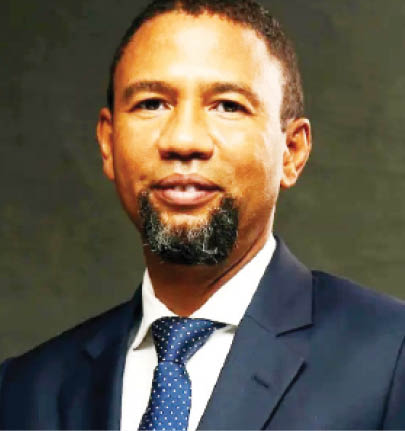MTN Shareholder raises eyebrow over Directors’ remuneration
Chief Executive Officer of MTN Nigeria Communications, Mr. Karl Toriola, has explained why the telecommunication company can’t cut down on the Board of Directors’ remuneration despite the challenging operating environment. Toriola spoke while responding to questions during the Annual General Meeting (AGM) of the company held last week in Lagos, saying the payment to the […]

CEO of MTN Nigeria, Karl Toriola
Chief Executive Officer of MTN Nigeria Communications, Mr. Karl Toriola, has explained why the telecommunication company can’t cut down on the Board of Directors’ remuneration despite the challenging operating environment.
Toriola spoke while responding to questions during the Annual General Meeting (AGM) of the company held last week in Lagos, saying the payment to the board of directors was not excessive.
At the AGM, a shareholder identified as Olushola Makindipe had queried the remuneration of the Directors, saying it does not reflect the challenges of the moment.
Daily Trust reports that MTN Nigeria had posted huge losses due to inflation and naira devaluation which made it difficult to declare dividends for shareholders.
However, as part of the resolutions at the AGM, the Directors’ annual fees “for the financial year ending 31 December, 2024 and for succeeding years until reviewed by the Annual General Meeting” was fixed at N54,120,000 for the Chairman and N36,285,000 for each of the Non-Executive Directors respectively.
The shareholder said, “Why we would not be going home with any share, those on the board are also going and I think about austerity, it should be from both the top and the bottom. Whatever is being given to board members does not reflect the economic situation of the company and if the truth needs to be said, you only need to take a quarter of what you are taking home or half of it but not as bogus as it has been brought to us. And I am saying so because we must all feel the pinch and we must all share in the burden.”
But responding, Toriola stated that the company was mindful of the need to take some austerity measures but the Directors’ fees are fair compensation which must be competitive.
More so he stated that members of the Board of Directors have been working assiduously to provide corporate guidance and direction for the company.
He said, “The Board fees that we pay our Board of Directors must reflect what is competitive and the Board of Directors themselves are conscious of the economic situation. But they deploy an extensive period of time into the oversight and governance of this company.
“There are certain committees that have met 28 times in this quarter to ensure that they have full and proper oversight of the activities of the company particularly in a difficult and challenging micro period like this and we have to strike the balance between getting the best quality Board of Directors, with the relevant experience, with the highest standards of moral ethics and compliance and retain those boards of Directors at not an excessive rate but at a fair compensation because it entails an extensive quantity of works. But I assure you the board is conscious of this and we always keep a close eye on that.”
To overcome the volatility in the market and recover from forex shock, Toriola said the board had taken a decision to cut down on capital expenditure to below 10 per cent of revenue even he stated that tariff increase is necessary for the sustainability of the industry.
He said stated that another action taken to be able to restore dividends in the nearest future is the restructuring of “some significant contracts” to drive down cost.
“We structured our balance sheet very efficiently. We went to the market and raised bonds at rates that are close to sovereign rates. We had a mixture of naira and dollar on our balance sheet and we probably have the lowest cost of debts on our balance sheet that you can find.
“The market is volatile. We are not the only corporate that is experiencing these challenges. Every corporate in the telecom industry, in food and beverages, in varieties of industries is experiencing the same challenges as a result of inflation, and devaluation of the naira. So it is a general micro problem and we would work out of this.”
